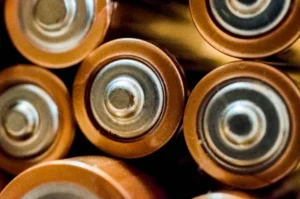
The City of Charlotte and Duke Energy Carolinas are launching an income-qualified energy efficiency home rehabilitation pilot program. The High Energy Use Pilot will help income-qualified customers with high energy use receive much-needed home repairs and energy efficiency retrofits that will improve housing safety and reduce their electricity usage and overall costs.
Duke Energy will invest approximately $4 million in the Charlotte region to support energy retrofits for approximately 500 high-electrical use, income-qualified customers. The city will provide up to $1 million in American Rescue Plan Act (ARPA) funding to support home repairs necessary before energy efficiency retrofits can occur.
Home repairs may include window, roof, chimney, plumbing, or water heater repairs or replacements, pressure relief valve installation, mechanical ventilation, and lead-based paint hazard control.
Energy retrofit measures may include the replacement of heating, ventilation and air conditioning systems as well as comprehensive air sealing, insulation, installation of LED bulbs and swapping out older refrigerators with ENERGY STAR® models.
“The city is excited to partner with Duke Energy on this program. By providing much-needed home repairs and energy retrofits, we can lower energy costs and provide safer housing for our residents who need it most, and reduce emissions in our community, all at the same time,” said City of Charlotte Mayor Vi Lyles.
“Duke Energy is proud to collaborate with the City of Charlotte on this public-private partnership to deliver the benefits of energy efficiency to a greater diversity of customers across the city,” said Kendal Bowman, North Carolina state president, Duke Energy. “We appreciate the city’s leadership and are hopeful that this pilot, if successful, may one day help expand offerings to help more customers save energy and money, and support a cleaner energy future for all communities we serve.”
According to the Department of Energy, the national average energy burden – the percentage of gross income spent on energy costs – for low-income households is 8.6%, which is three times higher than for non-low-income households (estimated at 3%). Energy burden is defined as the average annual housing energy costs divided by the average annual household income. Monthly housing energy costs are based on household monthly expenditures for electricity, gas and other fuels (including fuel oil, wood, etc.). This program seeks to address issues specific to the electrical portion of energy burden, and the outcomes can inform and influence future Duke Energy and city programs toward a more equitable, low-carbon future.
Duke Energy created the pilot in collaboration with stakeholders at the request of the North Carolina Utilities Commission to provide energy efficiency retrofits for income-qualified, high-electrical use customers at no cost to the customer. However, as many as 40% of households that could be eligible for this program would not be able to participate due to health and safety issues in the home, particularly housing repair issues such as damage to doors, windows or the roof that need to be addressed first. The funding provided by the city through this public private partnership will ensure that customers who otherwise would not be able to engage in this pilot will now be able to take advantage of these retrofits.
Charlotte is one of three North Carolina municipalities, including Forsyth and Guilford counties, selected for the pilot. The initial goal is to assist 1,000 participants over a two-year span from an estimated 22,000 income-qualified residents in all identified areas.
Duke Energy is accepting applications for the program now, and the first service appointments will start in mid-May, with an emphasis on homes that are in the city’s Corridors of Opportunity. For more information or to apply, customers can visit duke-energy.com/highusehelp.
Duke Energy Carolinas
Duke Energy Carolinas, a subsidiary of Duke Energy, owns 19,500 megawatts of energy capacity, supplying electricity to 2.8 million residential, commercial and industrial customers across a 24,000-square-mile service area in North Carolina and South Carolina.
Duke Energy (NYSE: DUK), a Fortune 150 company headquartered in Charlotte, N.C., is one of America’s largest energy holding companies. Its electric utilities serve 8.2 million customers in North Carolina, South Carolina, Florida, Indiana, Ohio and Kentucky, and collectively own 50,000 megawatts of energy capacity. Its natural gas unit serves 1.6 million customers in North Carolina, South Carolina, Tennessee, Ohio and Kentucky. The company employs 27,600 people.
Duke Energy is executing an aggressive clean energy transition to achieve its goals of net-zero methane emissions from its natural gas business by 2030 and net-zero carbon emissions from electricity generation by 2050. The company has interim carbon emission targets of at least 50% reduction from electric generation by 2030, 50% for Scope 2 and certain Scope 3 upstream and downstream emissions by 2035, and 80% from electric generation by 2040. In addition, the company is investing in major electric grid enhancements and energy storage, and exploring zero-emission power generation technologies such as hydrogen and advanced nuclear.
Duke Energy was named to Fortune’s 2023 “World’s Most Admired Companies” list and Forbes’ “World’s Best Employers” list. More information is available at duke-energy.com. The Duke Energy News Center contains news releases, fact sheets, photos and videos. Duke Energy’s illumination features stories about people, innovations, community topics and environmental issues. Follow Duke Energy on Twitter, LinkedIn, Instagram and Facebook.
Source link: https://news.duke-energy.com/







